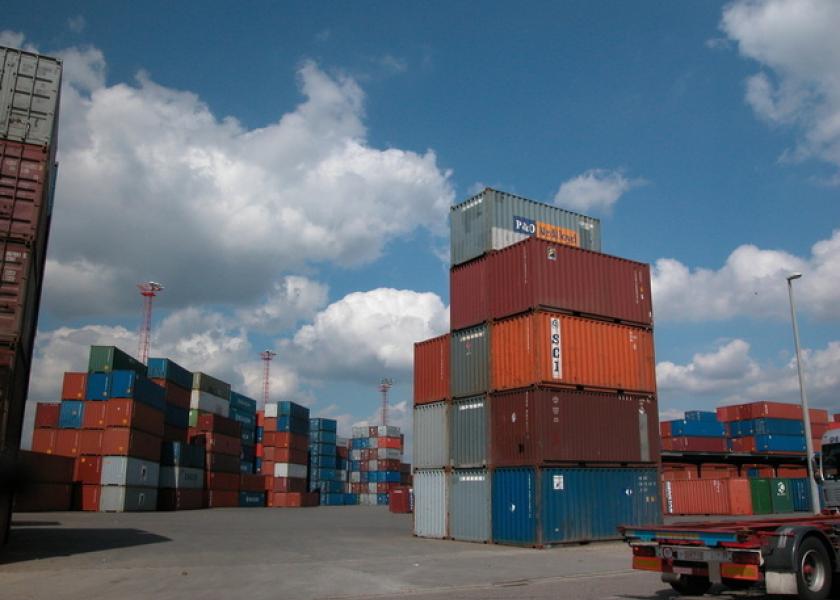Global container trade faces geopolitical challenges, report says

Geopolitical risks will shape the landscape of global trade in 2024, a new forecast from Germany-based Container xChange says.
The company, an online container trading and leasing platform, released its New Year’s Edition Container Market Forecaster in early January.
Freight rates will increase in the short term to midterm, but not in the long run as “demand and supply is still highly imbalanced with no clear signs of a strong revival, the report said.
The majority of shipping professionals surveyed in December by Container xChange are gearing up to enhance resilience through strategic initiatives that include risk assessment and scenario planning, diversification of routes and suppliers and regulatory compliance, according to a news release.
The biggest headache resulting from geopolitical upheaval is the associated costs that companies will have to bear on top of the rising operating costs they have to already face, the release said.
Many customers are worried about the rising costs resulting from the Red Sea situation, like compliance charges, insurance premiums and war risk charges, and other costs, the release said.
Operating costs have been rising since soon after the rates crashed in 2022 and demand failed to recover. On top of the rising costs, these additionalsurcharges will only add to the worries of shippers and forwarders, the release said.
The inclusion of new economies in the BRICS (Brazil, Russia, India, China and South Africa) bloc, including Saudi Arabia, Iran, United Arab Emirates, Egypt and Ethiopia, sets the stage for potential polarization of global trade, impacting geopolitical compliance, the release said.
Despite challenges, 82% of industry professionals acknowledge the importance of technology for resilience in 2024, with predictive analysis and forecasting tools taking center stage, according to the release.
Amid geopolitical developments, sanctions compliance becomes critical for supply chain professionals, adding another layer of complexity to global trade, the release said. There are still many geopolitical risks that have the potential to significantly impact shipping trade in 2024, the release said, including the war between Israel and Hamas, the related situation in the Red Sea, the Russia-Ukraine war, tensions between China and Taiwan, and an increasing enlargement of the BRICS block.
Container xChange co-founder and CEO Christian Roeloffs said in the release that the Red Sea, which is currently blocked, is a vital artery for global trade.
“Thankfully, there are ways to circumvent that artery and keep the global trade moving and therefore, the trade is not stopped," he said. "Therefore, the Red Sea situation is acute but not chronic in the long term for the shipping industry.”
What can have a far-reaching and long-term impact on the global supply chain is the BRICS inclusions of more economies, Roeloffs said.
There is a host of countries being added in the BRICS bloc, which has been viewed as a counterbalance to the Western-led world order, the release said.
“If the [bloc] starts to increasingly align political decisions and geopolitical stances, then there could be added complexities to the global trade order with rising polarization of global trade,” Roeloffs said.
“Ultimately this might lead to a situation where one [bloc] is not allowed to trade with the other [bloc] and eventually, geopolitical compliance becomes more complex and difficult.” he added.
Any geopolitical unrest has a direct and causal impact on global trade which results in market volatility, the release said, which can include trade rerouting and higher operating costs.







